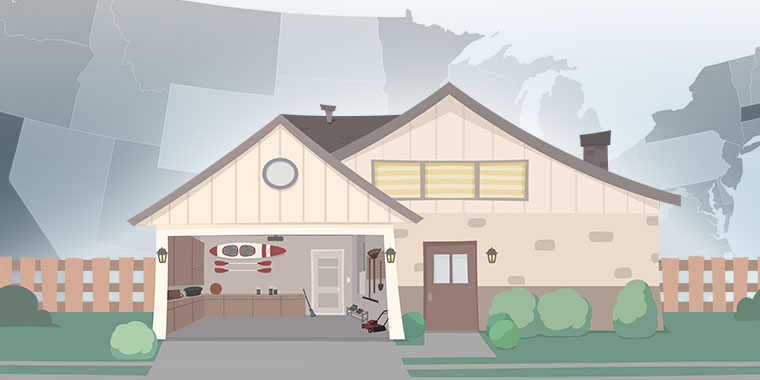How Many FHA Loans Can I Have At Once?
January 16, 2025
The short answer is that it's tricky. FHA loans are about helping you buy a place to live in – your main home base. Because of this, and a few other things, getting multiple FHA loans isn't easy.
Living There Matters: The Occupancy Rule
The biggest hurdle is that you usually have to live in the home you buy with an FHA loan. It's gotta be your primary residence. There are a few exceptions, like if you're moving for work and can't sell your old place, but generally, you can't use FHA loans for vacation homes or investment properties.
More Than Just Where You Live
Even if you could have multiple "main" homes, there are other things that make getting multiple FHA loans tough:
- Debt-to-Income Ratio: Lenders want to ensure you can afford your loan payments. They look at how much debt you have compared to your earnings. Every time you add a mortgage, it is harder to qualify for another loan.
- Credit Score: Your credit score is like your financial report card. Managing multiple mortgages can be a juggling act, and your credit score can take a hit if you miss payments.
- Lender Rules: Each lender has its own rules about how many FHA loans they'll give to one person, even if the FHA doesn't have a strict limit.
- Money Matters: Lenders want to see that you're financially stable. Multiple mortgages mean you need more cash to cover all those payments, taxes, and potential repairs.
There are a few situations where having more than one FHA loan might be possible. As we mentioned before, if you have to move and can't sell your old place, you might be able to get a new FHA loan for your new home. Also, if you're going through a divorce or separation, each person might be able to get their own FHA loan.
All such scenarios are handled on a case-by-case basis, and you may need to submit additional documentation to have such a loan considered.
While the FHA doesn't flat-out say you can't have more than one loan, it's usually not that simple.
Most of the time, FHA loans are for your main home, and many rules and factors make it hard to get more than one. If you don't have special circumstances like a career change or an adjustment in the size of your family, more than one FHA mortgage may not be possible.

FHA Loan Articles
April 30, 2025 In a previous post, we discussed why FHA borrowers should carefully consider whether paying for discount points truly serves their best interests, focusing on factors like short-term homeownership, opportunity cost, FHA mortgage insurance, and the prevailing interest rate environment. Discount points are an option for borrowers willing to pay a fee to lower the interest rate by a set amount. This is not right for all borrowers, and you don't want to pay for points you won't benefit from during the loan term.
April 29, 2025Are you considering buying a home with an FHA loan? You'll likely talk to your participating lender about FHA loan "discount points" – fees you pay upfront for a lower interest rate on your mortgage. The idea behind discount points is a straightforward exchange: you spend money today to reduce your interest rate. Typically, one point equals one percent of your total FHA loan. In return, your interest rate might decrease by an amount you and the lender agree upon.
April 28, 2025Home loans have various expenses that aren't apparent to a new borrower until much later in the process. What do you need to consider when making your home loan budget? It might not be complete without addressing some of the issues we cover here.
April 23, 2025 While the prospect of lower interest rates or more favorable loan terms can be enticing, there are situations where waiting is the better option. Refinancing without carefully considering your current financial circumstances is never a good idea, but careful planning in the current financial environment is even more important.
April 22, 2025First-time home buyers worry about loan approval, but there are important steps to take to increase the likelihood that the lender will approve their application for the loan or pre-approval. What do you need to know before you choose a lender?







